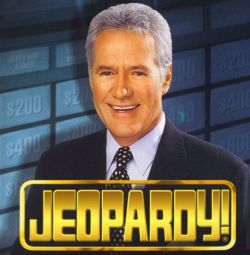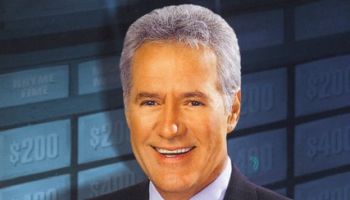 Video game players have been searching for the perfect trivia game since the very beginning… and I mean that literally. Nutting’s Computer Quiz coin-op, which was first released in the 1960s, served as the precursor to both Computer Space and Pong.
Video game players have been searching for the perfect trivia game since the very beginning… and I mean that literally. Nutting’s Computer Quiz coin-op, which was first released in the 1960s, served as the precursor to both Computer Space and Pong.
After more than 50 years, developers are still trying to figure out what players want from a trivia game. It’s a good question, as the answer has eluded pretty much everyone.
But there are times when everything clicks into place, and though the genre is built on a bevy of game show adaptations, developers have also produced some fun and interesting experiments over the years. Let’s look at a few.
 Insert Quarter is a glimpse into gaming’s past, present, and future through an exploration of historical, retrospective, and contemporary reporting.
Insert Quarter is a glimpse into gaming’s past, present, and future through an exploration of historical, retrospective, and contemporary reporting.
Alex Trebek, the longtime host of Jeopardy! and the person most associated with America’s modern love of trivia, died on November 8 after living with stage IV pancreatic cancer for nearly two years.
His tenure as the host of Jeopardy! began in 1984, and he would also appear in dozens of video game adaptations of the quiz show over the next 36 years. The most recent, 2020’s Jeopardy! PlayShow, actually used archival footage from the Jeopardy! vault and allowed players to compete against past champions like James Holzhauer and Brad Rutter.
In honor of Trebek’s final show, Kyle Orland of Ars Technica played through as many Jeopardy! adaptations as he could, noting how the series, and video games in general, changed (or didn’t) with the times:
To mark the end of the Alex Trebek era, I’ve spent the past few weeks playing and examining as many Jeopardy! video games as I could. The result has been a fascinating trip through video game history and an interesting encapsulation of how video game technology and design have evolved over 30+ years.
What I learned playing 30+ years’ worth of Jeopardy! video games
Primetime game shows began to multiply in the early 2000s as other networks wanted a piece of the mania surrounding ABC’s Who Wants To Be A Millionaire. While none of these shows had the staying power of Jeopardy! (which was riding high at the time thanks to Ken Jennings and his wild winning streak), viewers momentarily flocked to new quiz show competitions such as Weakest Link, Beat the Geeks, and 1 Vs 100.
That last one was hosted by Bob Saget, and it gave the 100 members of its audience (“The Mob”) a chance at quiz show glory against a single player on stage (“The One”).
Microsoft saw the potential in 1 Vs 100 for their then-in-development Xbox Live Primetime initiative, which sought to apply the concept of “Appointment Viewing” to video games by adding a live component (in this case, a live host). Though it wasn’t Saget asking the questions, but comedian Chris Cashman.
1 Vs 100 made its Xbox Live debut in 2009, a year after the show had been canceled by NBC. But that ultimately didn’t matter, as it attracted a dedicated fanbase who loved the idea of live trivia (and the chance to win real money for knowing the right answers).
Patrick Klepek wrote about the rise and fall of 1 Vs 100 for Kotaku after Microsoft canceled the game (and the entire Xbox Live Primetime concept):
Anyone recall Xbox Live Primetime, Microsoft’s push to do game shows on Xbox Live? No? That’s probably because 1 vs. 100, based on the television show of the same name, was the only one Microsoft ever produced.
Yes, that actually happened.
That Time Microsoft Ran A Live Game Show On Xbox 360
Microsoft’s executives have spent the last ten years promising that 1 Vs 100 would return to the Xbox platform someday. As fans continue to wait, a different live trivia game became a viral sensation in the not-too-distant past of 2018 and 2019. Featuring a live host and promising cash payouts (sound familiar?), HQ Trivia was briefly a must-have mobile game.
Alyssa Bereznak uncovered the full story of HQ Trivia in a massive eight-part investigation (and an accompanying eight-episode podcast) for The Ringer. And she manages to answer the most important question of all, if millions of people played HQ Trivia, what happened to it?
When I first started reporting on HQ, I wanted to know: Why do the things I love on the internet always die? What do we lose in our hypercharged attention economy? And is my own fleeting attention span to blame? But the further I got into the story, I found that HQ was also a cautionary tale. Of a company’s existential hand-wringing. Of a deeply dysfunctional work environment. And of the dangers of going too viral too early. HQ has had more than a few extra lives. Over the next eight episodes, we’ll re-live all of them.
Boom/Bust: The Rise and Fall of HQ Trivia
It might take another 50 years, but the perfect trivia video game is out there somewhere. Like Alex Trebek, let’s hope the public appreciates it before it’s gone too soon.

